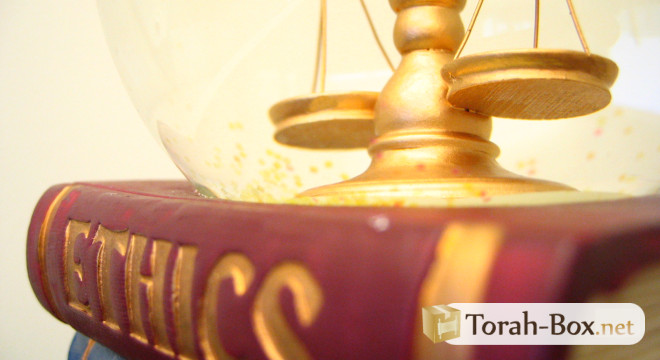
Money & Business
Beth Din: Last Will and Testament Halachically Incorrect
Here is a concrete legal case handled by the rabbinical courts. We have chosen this example to help you learn, ponder upon and gradually assimilate "Daat Torah", so your mindset and reflections increasingly tune-in with the Torah.
Question
(Asked by a young intern working for a law firm in Israel).
Having been assigned to write an official will, our lawyer hesitates to formulate it and sign it, based on the fact that his client is Jewish and the formulation of the aforesaid will as requested by his client will be halachically invalid.
Indeed, according to Halacha, expressing the wish to bequeath one's assets as is done in an official will is insufficient. A will must be followed by a Kinyan (and act of acquisition). Therefore, when for example, a person bequeaths his patrimony to his daughters, the latter may unduly take hold of their brothers' assets (according to Halacha, an inheritance is bequeathed to male heirs exclusively). Conclusively, a lawyer who signs this will could be misleading his clients.
Is this problematic?
Psak and Commentaries
At first glance, one who contributes to the writing of a will should make it conform to halachic criteria. Therefore, it is necessary to seek the advice of a Dayan or an informed individual before writing a will. In this regard, the Gemara states one should not be part of "those who transfer inheritances" (Ketuvot 53a). It is therefore critical to refrain from being involved in any inheritance issue, which prevents heirs from inheriting assets that are duly theirs. Some communities have instituted this prohibition by making it known to anyone wishing to bequeath their property. (Kerem Chemer of Rabbi Avraham Ankaua Volume 2).
However, the Rambam and the Shulchan Aruch are of the opinion that mere participation (in writing and signing an invalid will, which the lawyer did not exploit to his advantage) is not a formal prohibition, but should be discouraged nonetheless; thus, the Gemara recommends following a pious and God-fearing attitude in such cases. Some leniency is allowed in certain cases, as for example, when a lawyer has no choice but to draft a will as required by his client.
The opinion of Achiezer also permits the above, stating that a will signed and validated according to the law of the country, is equivalent to entrusting the money in the hands of a third person who is responsible to fulfill the will of the deceased. (Shulchan Aruch, Choshen Mishpat, Siman 252). The Iguerot Moshe further supports this idea and goes as far as to validate the aforesaid document as if the necessary Kinyan had been made according to Halacha.
While these opinions are not shared by all (see among others the opinion of Rav Eliyashiv and Rav Weiss), they may nonetheless be considered; and in our case, some leniency is allowed. Anyone whose actions may lead to a prohibition (that of individuals seizing assets legally earmarked for others) in the writing of this will is not personally committing an offense; he may take into consideration these lenient opinions. (This idea is developed by Mabit regarding the fruit of the seventh year.)
In this regard, Rabbi Weiss, Av Bet-Din de Darkei-Horaa, believes observant Jews must be encouraged to work in administrative positions allowing them to conform to and enforce halachic prescriptions.
As far as we are concerned, we would advise our young lawyer to keep his job and to try to influence the formulation of wills and testaments to comply (as much as possible) to Halacha.
Rav Chaim Vidal
This section shares cases (common or not) treated in a Rabbinical Bet-Din. Our purpose is to raise awareness of the Torah's recommendations on settling any financial dispute according to highly regulated logic. We recommend that you avoid drawing personal conclusions from these teachings, because a simple detail or word may change the outcome of a psak-din.
- « Help …Forex and the Holiness of Eretz Israel!
- Beth Din–Can a First Born Relinquish his Inheritance... »
Torah-Box.net Account
To access the entire Torah-Box.net website, sign up for free in less than a minute.
Weekly Parsha
 Candle Lighting - New York
Candle Lighting - New York
Friday December 26th, 2025 at 16:16 *Shabbat ends at 17:22 *
change my location
* Times given as an indication, check the times of your community








